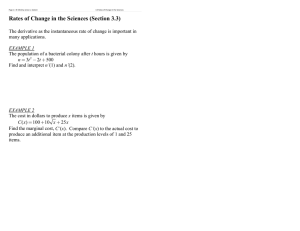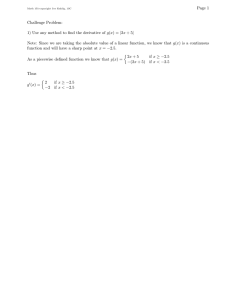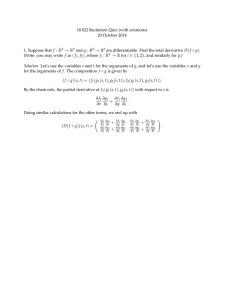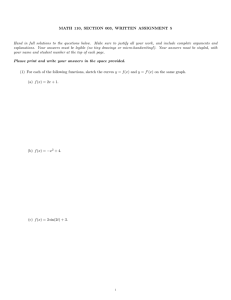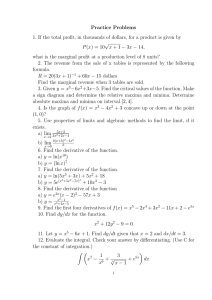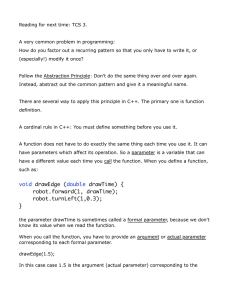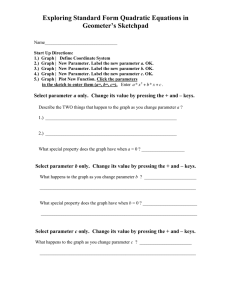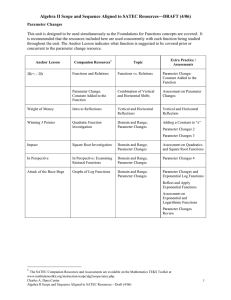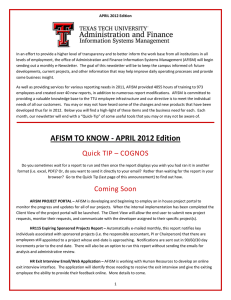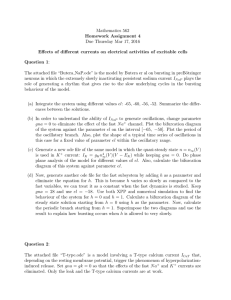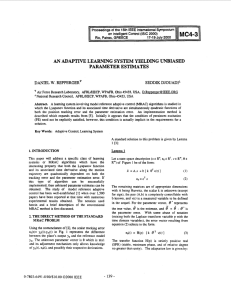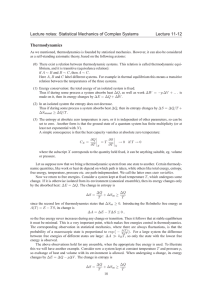Parameters
advertisement
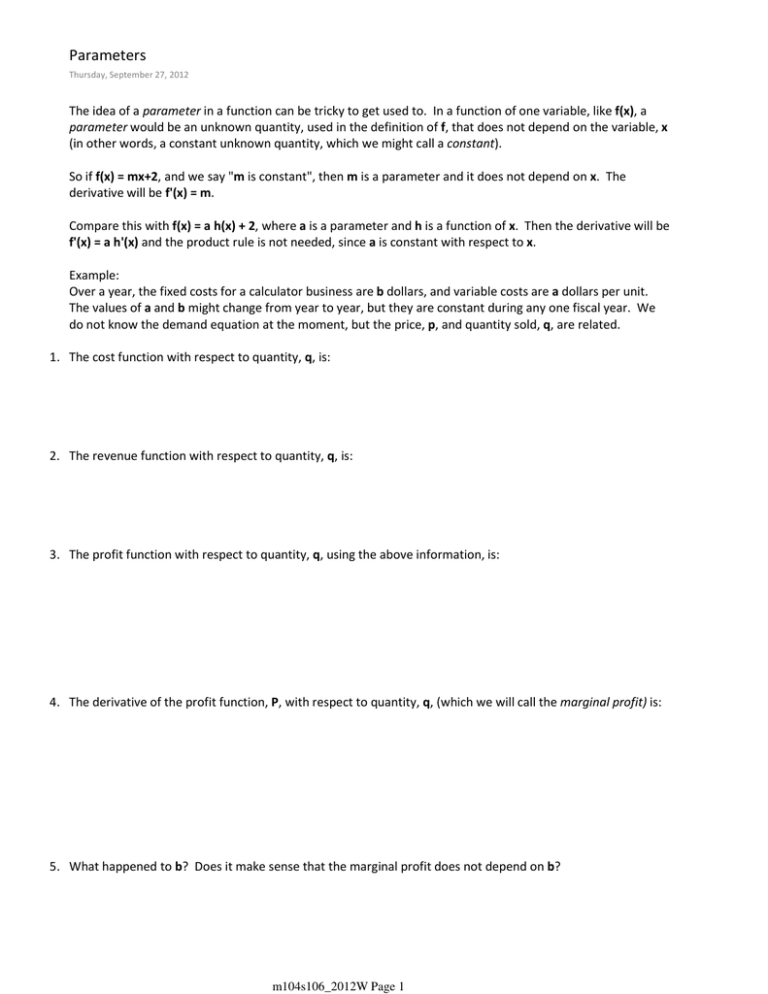
Parameters Thursday, September 27, 2012 The idea of a parameter in a function can be tricky to get used to. In a function of one variable, like f(x), a parameter would be an unknown quantity, used in the definition of f, that does not depend on the variable, x (in other words, a constant unknown quantity, which we might call a constant). So if f(x) = mx+2, and we say "m is constant", then m is a parameter and it does not depend on x. The derivative will be f'(x) = m. Compare this with f(x) = a h(x) + 2, where a is a parameter and h is a function of x. Then the derivative will be f'(x) = a h'(x) and the product rule is not needed, since a is constant with respect to x. Example: Over a year, the fixed costs for a calculator business are b dollars, and variable costs are a dollars per unit. The values of a and b might change from year to year, but they are constant during any one fiscal year. We do not know the demand equation at the moment, but the price, p, and quantity sold, q, are related. 1. The cost function with respect to quantity, q, is: 2. The revenue function with respect to quantity, q, is: 3. The profit function with respect to quantity, q, using the above information, is: 4. The derivative of the profit function, P, with respect to quantity, q, (which we will call the marginal profit) is: 5. What happened to b? Does it make sense that the marginal profit does not depend on b? m104s106_2012W Page 1 Piecewise function involving parameters, example Suppose that f(x) is defined by 6. For which values of a and b (if any) is the function continuous for all values of x? 7. For which values of a and b (if any) is the function differentiable for all values of x? 8. What changes in your work for #6 and #7 above if instead we use the function: (You will probably need more space to finish this one, but give it a try if you are happy with your work on the other parts.) m104s106_2012W Page 2
